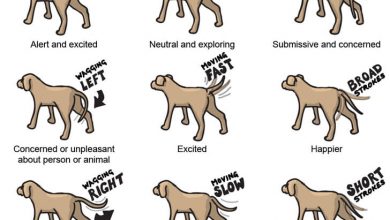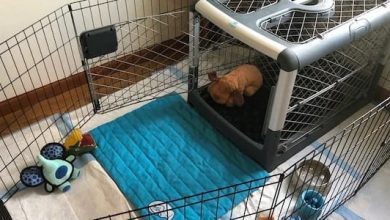Why Does My Dog Do Things He Knows Is Wrong

1. Introduction
Dogs are intelligent, social animals that can learn complex behaviors and communicate with humans. But they can also be naughty and do things they know are wrong. Understanding why your dog does the things he knows is wrong can help you better manage his behavior and create a happier home for both of you.
2. What is Wrong Behavior in Dogs?
Wrong behavior in dogs can range from minor infractions such as jumping up on people or stealing food off the counter, to more serious offenses such as aggression or excessive barking. Some wrong behaviors may be harmless, while others may be dangerous or illegal. Regardless of the severity, it is important to understand why your dog is exhibiting these behaviors in order to address them appropriately.
3. Common Reasons Why Dogs Misbehave
There are many reasons why dogs may misbehave, but some of the most common include genetics, early socialization, anxiety, stress and fear, boredom and lack of exercise, lack of training and discipline, attention seeking behaviors, poor diet and health issues.
4. Genetics and Early Socialization
Genetics can play a role in how a dog behaves; certain breeds have been bred over time to have traits that make them more prone to certain behaviors than others. For example, herding breeds may be more likely to chase after smaller animals or bark excessively due to their natural instinct to herd livestock. Additionally, early socialization is key for puppies; if a puppy does not receive proper socialization during their early weeks of life, they may not learn how to interact appropriately with their environment or other animals later on.
5. Anxiety, Stress and Fear
Anxiety, stress and fear can also lead to unwanted behaviors in dogs. If your dog feels scared or threatened by something in their environment, they may act out aggressively or try to escape the situation altogether. Additionally, if your dog is feeling anxious or stressed due to changes in their routine or environment (such as moving house), they may exhibit destructive behaviors such as chewing furniture or digging holes in the garden as a way to cope with the change.
6. Boredom and Lack of Exercise
Boredom and lack of exercise can also lead to unwanted behaviors in dogs; if your dog does not have enough physical activity or mental stimulation then they may start acting out due to boredom. This could include chewing furniture or shoes, barking excessively at passersby or even digging up plants in the garden! Providing your dog with plenty of exercise and mental stimulation will help reduce these types of behaviors.
7. Lack of Training and Discipline
Lack of training and discipline can also lead to unwanted behaviors; if your dog does not understand what is expected of them then they may act out as a way of testing boundaries or getting attention from you. Establishing clear rules and boundaries will help your dog understand what behavior is acceptable and what isn’t so that they don’t feel the need to act out inappropriately in order to get attention from you.
8. Attention Seeking Behaviors
Some dogs may act out in an attempt to get attention from their owners; this could include jumping up on people when they enter the room or barking excessively at passersby outside the window. Providing positive reinforcement for good behavior will help discourage these types of attention-seeking behaviors by rewarding your dog when they behave appropriately rather than reinforcing bad behavior by giving them attention when they act out inappropriately.
< h 2 > 9 . Poor Diet and Health Issues < / h 2 > Poor diet and health issues can also contribute to unwanted behaviors ; if your dog does not receive sufficient nutrition then this can lead to health problems which could manifest in behavioral issues such as aggression , hyperactivity , depression , etc . Ensuring that your dog has a healthy diet full of essential nutrients will help keep them healthy both physically and mentally .
< h 2 > 10 . Preventing Unwanted Behaviors < / h 2 > To prevent unwanted behaviors it is important to ensure that your dog receives regular exercise , mental stimulation , proper nutrition , training , discipline , socialization , love , affection , etc . All these factors contribute towards creating a happy , healthy home environment where both you and your pet feel secure .
< h 2 > 11 . Conclusion < / h 2 > In conclusion , understanding why your dog does things he knows is wrong can help you better manage his behavior so that both you and your pet can live happily together . By providing him with regular exercise , mental stimulation , proper nutrition , training , discipline , socialization , love , affection , etc . you can create an environment where he feels secure and rewarded for good behavior instead of punished for bad behavior .




